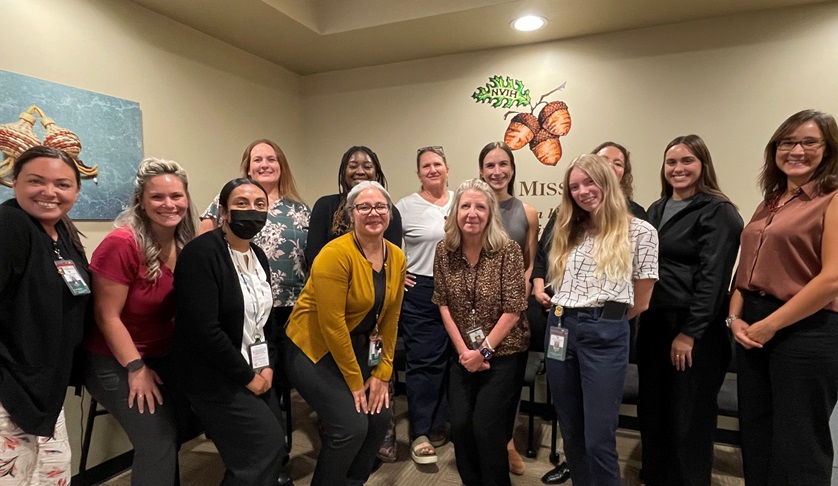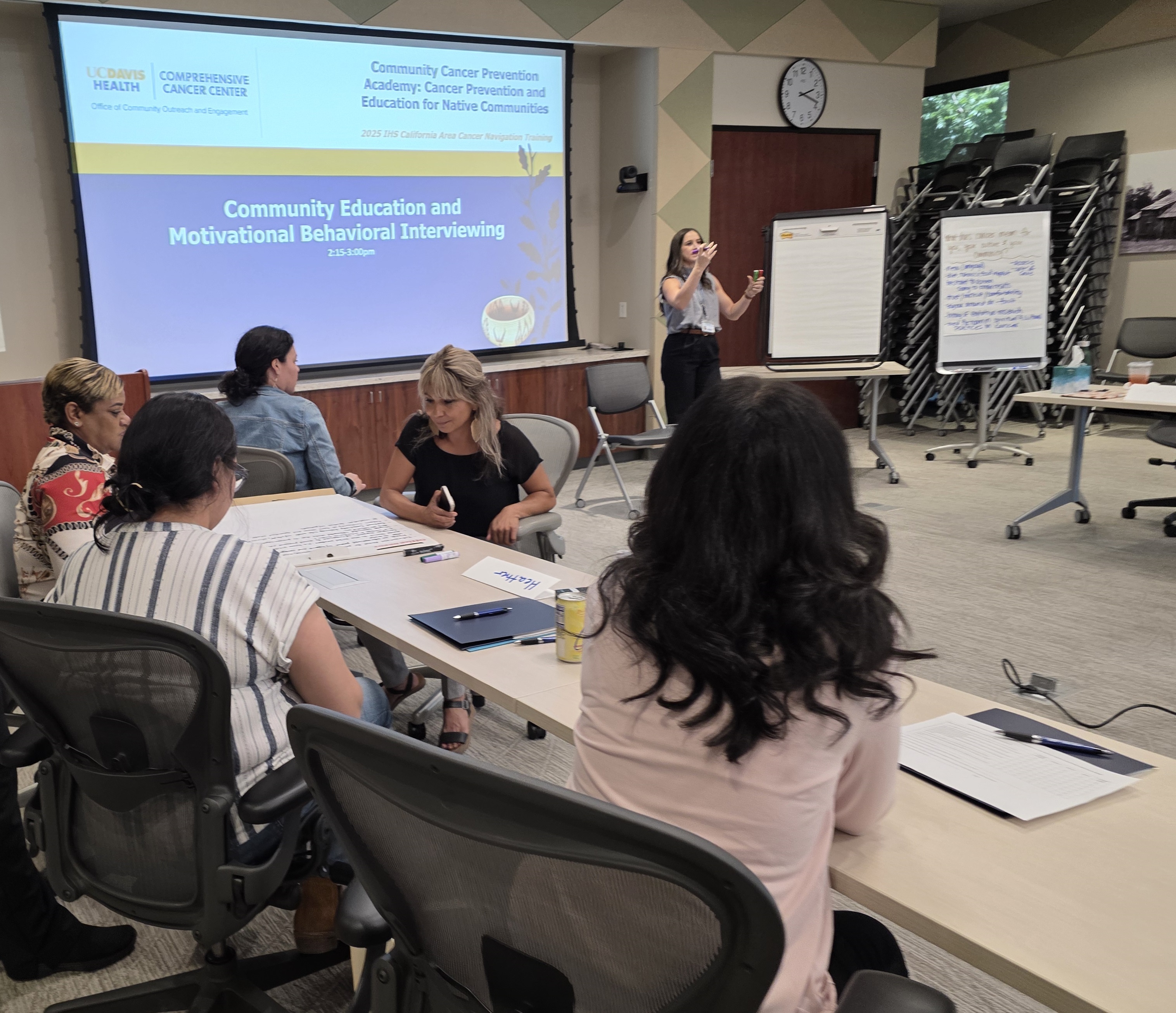Success Stories
HP/DP highlights
We are featuring prevention highlights and accomplishments from the field, meant to inspire action to make positive changes to support wellness.
Project Description: The ten-week training began in July 2025. George Washington University (GWU) Cancer Navigation Training curriculum was utilized as the foundation of the training, followed by a virtual weekly office hour and an optional in-person experience. Each in-person experience was two days and included a full day of the ‘California Tribal Cancer Academy’ tailored and facilitated by UC Davis Comprehensive Cancer Center (CCC) Community Outreach and Engagement (COE) staff, as well as a second day which included an orientation and tour of a National Cancer Institute designated CCC – either UC Davis or UC San Diego with opportunities to meet and hear from supportive oncology staff, learn about genetic counseling for patients as well as pediatric cancer care.
Registration and Participation Data
A total of 42 tribal and urban staff registered and completed the training, representing a total of 17 tribal and urban programs in the California Area.
Training evaluation outcomes
- 100% of trainees felt that the training met the objectives
- 100% of trainees reported increased confidence in successful patient navigation
- 93% plan to attend future quarterly Cancer Navigation Meetings
- 100% of respondents plan on completing the Susan G. Komen breast cancer specific navigation training
- 100% of trainees reported that the training was culturally appropriate
Secondary Gains from the training
- Tribal and urban program participants all understand how to navigate the CCC nearest them and have program contact information.
- The CCC staff all have a better understanding of the tribal communities they serve.
- The University of California Cancer Center leadership are meeting to consider making it a standard of care throughout the state to co-design with local tribal representatives an outdoor healing space for AI/AN patients to utilize where they can hold ceremony and practice traditional healing while receiving care and treatment.
- Tribal and urban programs overall have a strengthened relationship with these academic partners to build future collaborations.
Contact
Anna Knight, MS, FNP-C, PHN
Office of Public Health
650 Capitol Mall, Suite 7-100
Sacramento, CA 95814
Suicide Prevention Training: Assisting a Tribal Chemical Dependency Program

Introduction-Project History: American Indian and Alaska Native (AI/AN) populations have the highest suicide rates in the United States. Access to care, economic barriers, and social stigma towards mental health diagnosis and treatment are just a few of the myriad of obstacles facing AI/AN populations when it comes to addressing mental health disparities in Indian Country. The Billings Area Office (BAO) Indian Health Service’ HPDP program is committed to assisting our tribal communities with preventing suicide. The goal of one of the tribal substance recovery programs we serve was to make suicide prevention training a priority for their staff and administration; this led our BAO HPDP Coordinator to schedule a Mental Health First Aid (MHFA) training for the facility, which met two goals in assisting the recovery facility, to bring the training directly to the tribal community and to supply training materials for their staff
Project Description: The Billings Area Office of Health Care Programs (OHCP), which includes Behavioral Health, uses a team approach when assisting tribal and urban facilities with their health care needs. The OHCP Behavioral Specialist/Licensed Addiction Counselor and the HPDP Coordinator visited this particular recovery program to meet in person and get an initial assessment of needs. Once specific needs became clear, OHCP administration advised on the plan and procured MHFA materials. Since the MHFA program requires two trainers for the 8-hour training, HPDP collaborated with the state’s extension office, which supplied MHFA trainers as co-instructors for the trainings. After the training was successfully completed, the facility was able to discuss next steps for their suicide prevention goals and objectives.
Training Attendee Feedback
"I feel more confident after this training to be able to assist someone in crisis."
"Thank you for training us today, I enjoyed the activities that were planned into the training."
"I love my community and want to be able to help those who are struggling."
Summary: The Billings Area Office helped provide suicide prevention training for tribal and urban health care programs, and shared suicide prevention education and skills with front-line health care providers to bring recovery and safety to their community members, contributing to the to overall health of their communities.
Contact
Paula M. Carter, PhD
Health Promotion/Disease Prevention
Office of Health Care Programs
Billings Area Indian Health Service
2900 4th Ave. North
Billings, MT 59101
See the HPDP success stories from 2020




